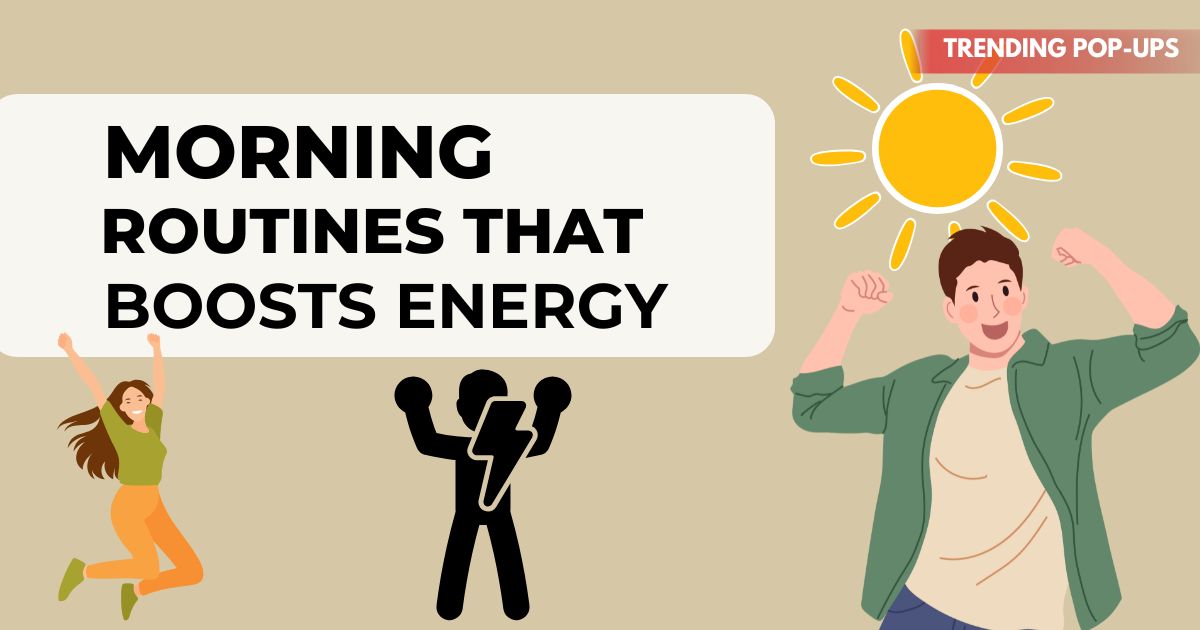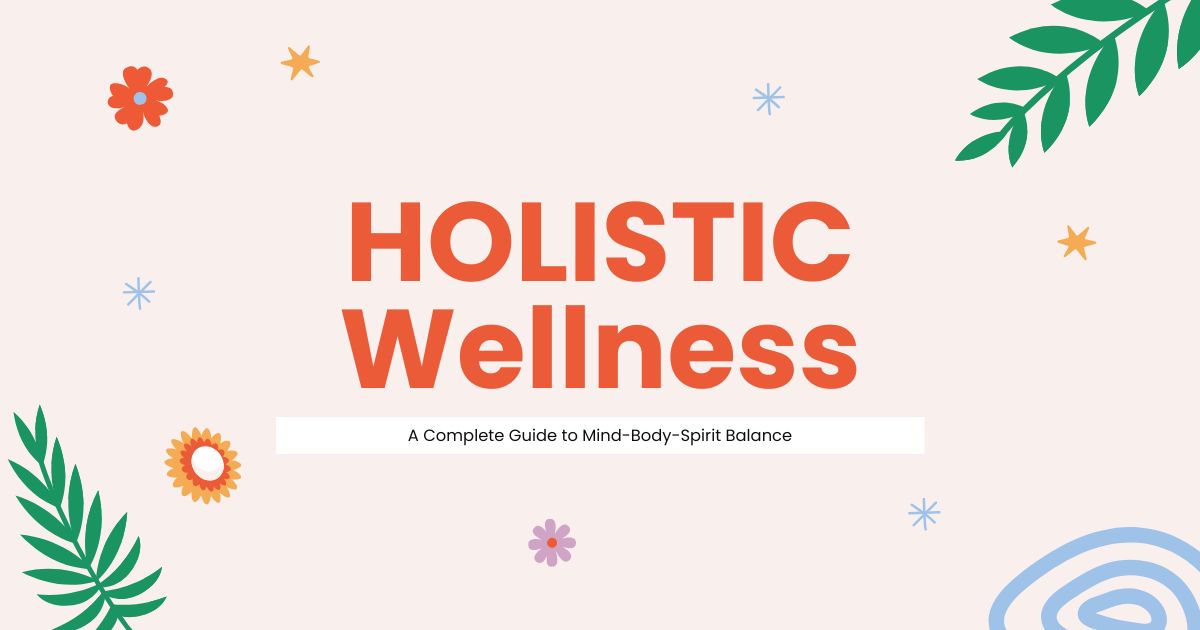Starting your day with intention can transform your productivity, mood, and overall health. Many people hit snooze, rush through mornings, or skip self-care—leading to fatigue and stress that lasts all day. The good news is that a well-designed morning routine can boost your energy, sharpen focus, and set a positive tone for everything that follows.
In this guide, we’ll explore how to create a morning routine that energizes both your body and mind.
Why a Morning Routine Matters
Your morning habits directly affect your physical health, emotional well-being, and productivity. Research shows that people who follow structured morning routines often experience:
-
Increased energy levels throughout the day
-
Better mental clarity and focus
-
Reduced stress and anxiety
-
Improved sleep cycles
-
Enhanced productivity and motivation
A powerful morning routine doesn’t need to be complicated—it’s about consistency and balance.
Step 1: Start with Quality Sleep
A morning routine starts the night before. Without adequate sleep, no ritual will truly energize you.
-
Aim for 7–9 hours of restful sleep.
-
Maintain a consistent sleep schedule, even on weekends.
-
Create a relaxing bedtime routine—dim lights, avoid screens, and read or meditate.
When your body is well-rested, mornings become much easier and more productive.
Step 2: Wake Up with Purpose
Instead of hitting snooze multiple times, get out of bed when your alarm goes off. A sluggish start often leads to low energy all day.
-
Place your alarm across the room so you have to get up.
-
Open your curtains or step outside to get natural sunlight exposure—this regulates your circadian rhythm.
-
Take a few deep breaths to wake up your body gently.
Waking up with intention helps shift your mindset from drowsy to energized.
Step 3: Hydrate Before Anything Else
Your body loses fluids during sleep, leaving you mildly dehydrated in the morning. Dehydration can cause fatigue, brain fog, and low energy.
-
Drink a full glass of water right after waking up.
-
Add lemon for vitamin C and metabolism support.
-
Avoid starting with caffeine immediately—hydrate first.
This simple step jumpstarts your metabolism and refreshes your system.
Step 4: Move Your Body
Physical activity in the morning stimulates blood flow, releases endorphins, and boosts energy.
-
Stretch or do light yoga for flexibility and relaxation.
-
Try a 10–20 minute workout such as bodyweight exercises, jogging, or cycling.
-
If you’re short on time, even a 5-minute movement routine is beneficial.
Exercise in the morning helps fight fatigue, improves mood, and keeps energy steady.
Step 5: Practice Mindfulness
Rushing into emails or social media can instantly drain your focus. Instead, start with mindfulness practices that calm your mind and set positive intentions.
-
Meditate for 5–10 minutes to reduce stress.
-
Write in a gratitude journal to focus on positives.
-
Practice deep breathing or affirmations.
A calm mind in the morning leads to greater resilience and focus throughout the day.
Step 6: Eat a Balanced Breakfast
Skipping breakfast or eating sugary foods often causes mid-morning crashes. A balanced breakfast fuels your brain and body.
-
Focus on protein, healthy fats, and fiber (e.g., eggs, oatmeal, nuts, Greek yogurt).
-
Limit refined sugar and processed foods.
-
If you practice intermittent fasting, ensure your first meal is nutrient-dense.
Eating right in the morning prevents energy dips and helps sustain productivity.
Step 7: Limit Digital Distractions
Checking emails or scrolling social media first thing can overwhelm your brain and drain focus.
-
Delay screen time for at least 30 minutes after waking.
-
Use this time for personal growth, reading, or mindfulness.
-
Plan your priorities before diving into technology.
Controlling your digital environment allows you to start with clarity rather than chaos.
Step 8: Create a To-Do List or Daily Plan
Clarity equals energy. When you know your top priorities, you save mental energy and avoid feeling overwhelmed.
-
Write down 2–3 most important tasks for the day.
-
Break large goals into smaller, actionable steps.
-
Review your calendar briefly to avoid surprises.
This habit ensures you start your day organized and motivated.
Step 9: Personal Growth Activities
Your mornings are the perfect time to invest in yourself. Even 15 minutes of personal development can set a positive tone.
-
Read a few pages of a book.
-
Listen to an inspiring podcast or audiobook.
-
Learn a new skill or practice a hobby.
Starting the day with growth builds momentum and purpose.
Step 10: Be Consistent, Not Perfect
The most effective morning routine is the one you can maintain. You don’t need a 2-hour ritual; even 20–30 minutes of intentional habits can change your energy levels.
-
Choose 3–5 key activities and stick with them.
-
Adjust based on lifestyle but maintain consistency.
-
Don’t aim for perfection—progress is more important.
With time, these habits will become automatic, creating lasting energy and balance.
Sample Morning Routine for High Energy
Here’s an example of a simple yet powerful 60-minute morning routine:
-
6:00 AM – Wake up, hydrate with water
-
6:05 AM – Stretch and light exercise
-
6:20 AM – Meditation or journaling
-
6:35 AM – Healthy breakfast
-
6:50 AM – Review goals and plan the day
-
7:00 AM – Begin focused work or activities
You can customize this to fit your schedule and energy needs.
Final Thoughts
Creating a morning routine that boosts energy doesn’t require perfection or hours of effort—it requires consistency, balance, and self-awareness. By incorporating sleep, hydration, movement, mindfulness, and nutrition into your mornings, you’ll feel more energized, focused, and motivated to take on the day.
Start small, build gradually, and let your routine become the foundation of a healthier, more energized life.
Also Read : DA Approves COVID Vaccines for High-Risk Individuals
FAQs
1. How long should a morning routine be?
It depends on your lifestyle. Even a 20-minute routine can work if you include key habits like hydration, movement, and mindfulness.
2. Is it better to work out in the morning or evening?
Morning workouts boost energy and metabolism, but the best time is the one you can do consistently.
3. Can I boost energy without caffeine in the morning?
Yes—hydration, exercise, sunlight exposure, and a nutrient-rich breakfast are natural energy boosters.
4. What if I’m not a morning person?
Start small. Go to bed earlier, wake up gradually, and add one positive habit at a time. Over time, mornings will feel easier.
5. How soon should I check my phone after waking up?
Try to wait at least 30–60 minutes before checking emails or social media. This preserves focus and prevents stress.



